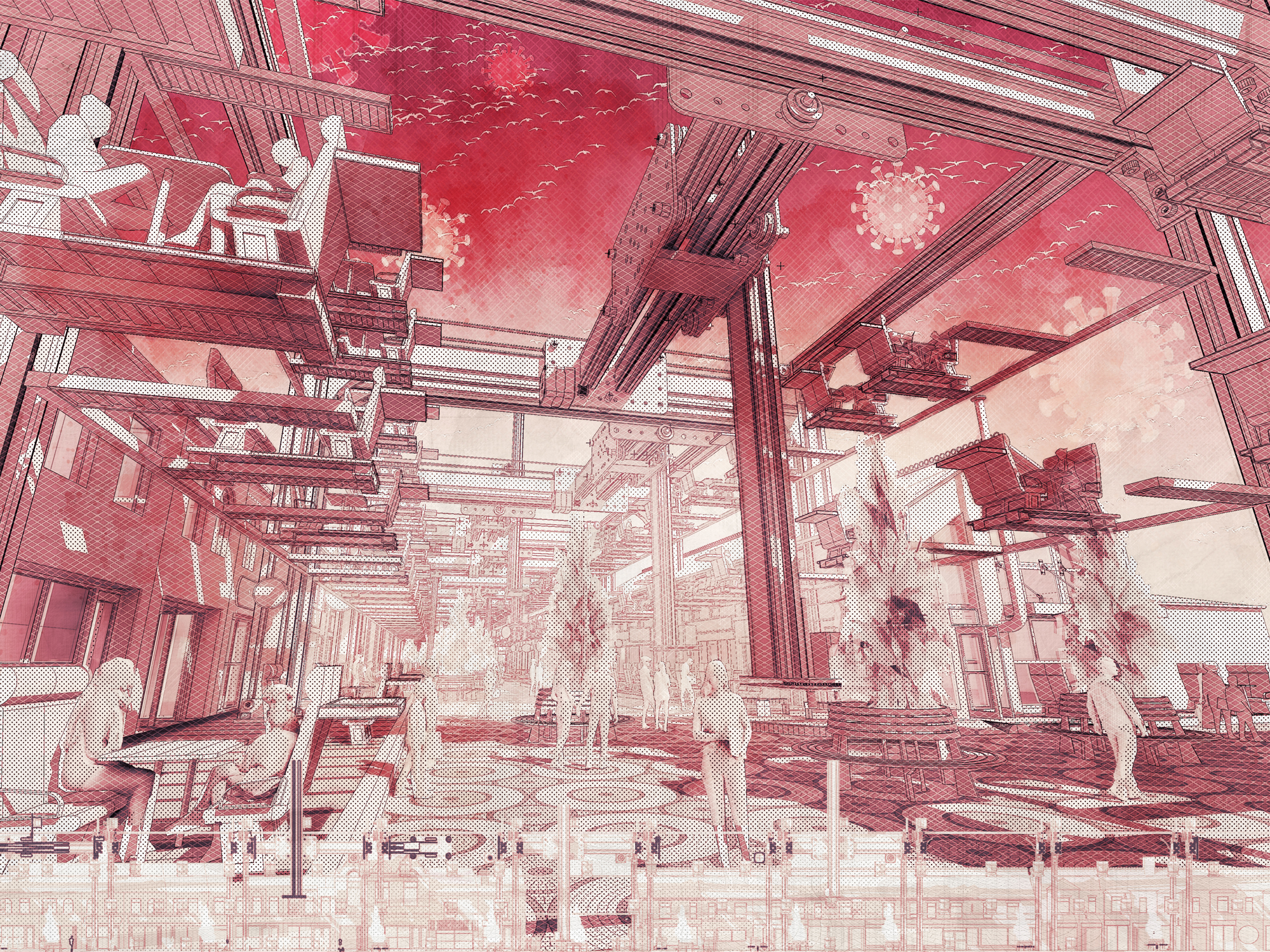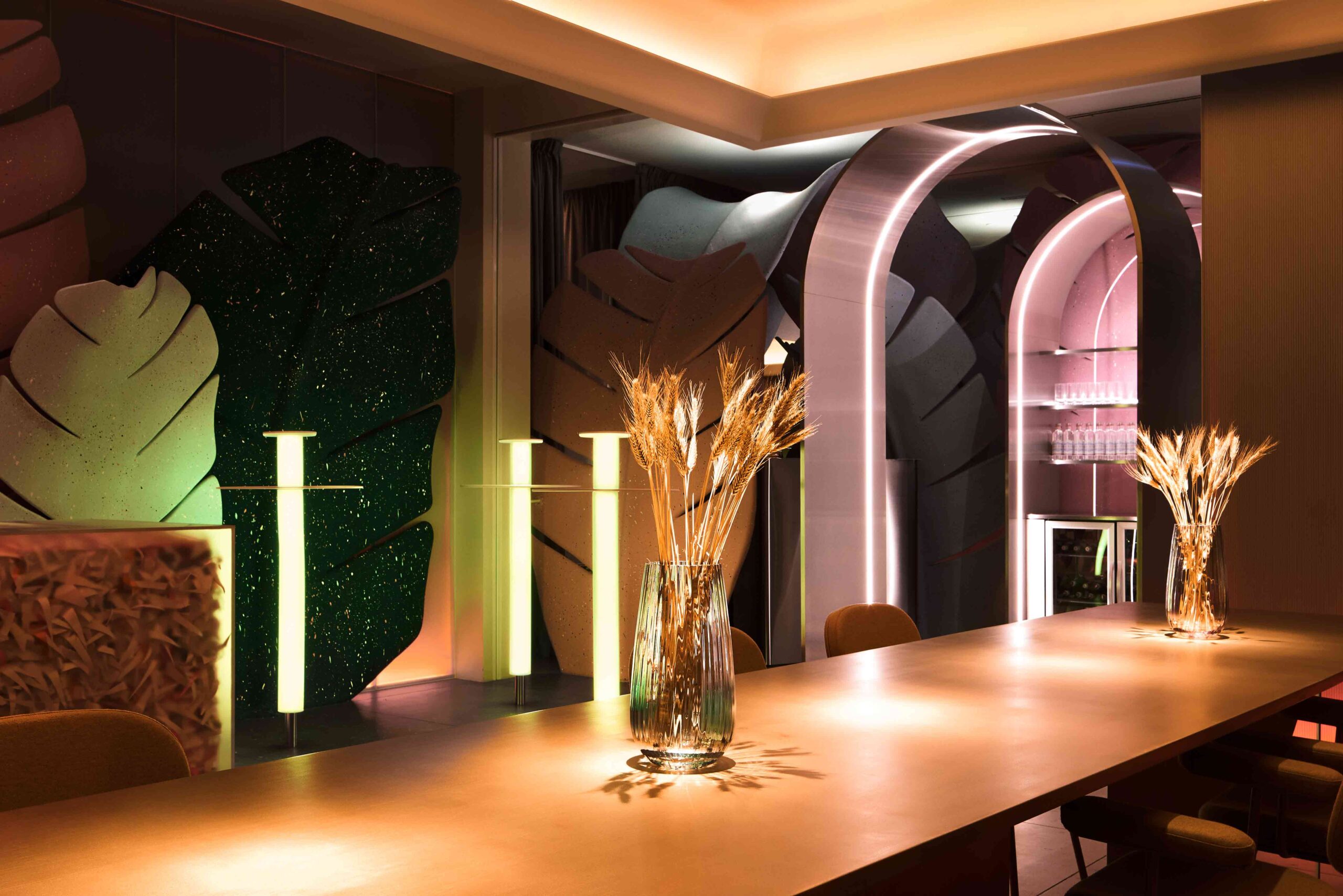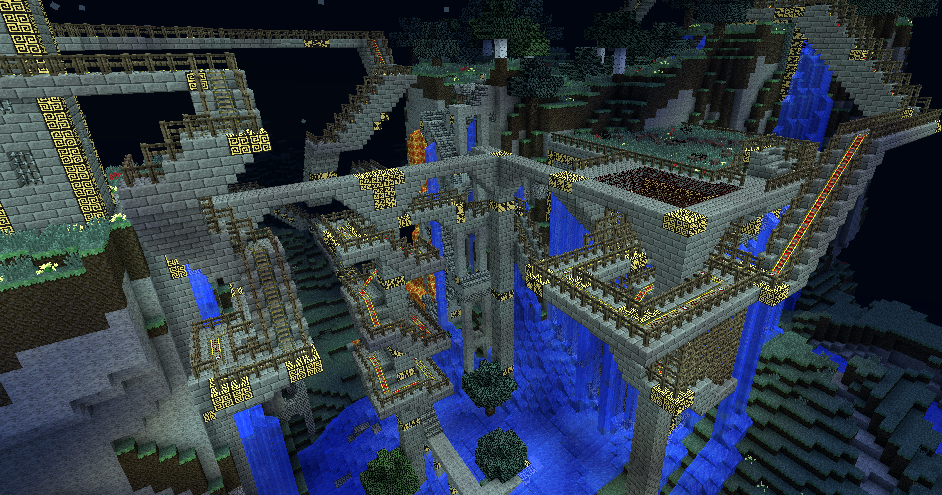The votes for the 2025 Vision Awards have been counted! Discover this year's cohort of top architectural representations and sign up for the program newsletter for future updates.
At first glance, one might assume the question posed in the title of this article is a rhetorical one. With a growing number of industry leaders advocating — with good reason — for students and young architects to receive more real-world construction experience, you could be forgiven for thinking that conceptual projects are a distraction, getting in the way of the invaluable education awaiting designers on the building site.
Make no mistake, though — anyone who tells you paper architecture is pointless needs reminding:
Ideas are the lifeblood of architecture.
Behind each award-winning project we see come to fruition each year, there lie countless sketches, models, and renderings created during the design process, as well as unrealized, theoretical concepts, commonly known as paper architecture. At their best, unbuilt architectural projects — just like their constructed counterparts — hold the potential to tell a powerful story, communicate fresh concepts and advance our profession through ideation.
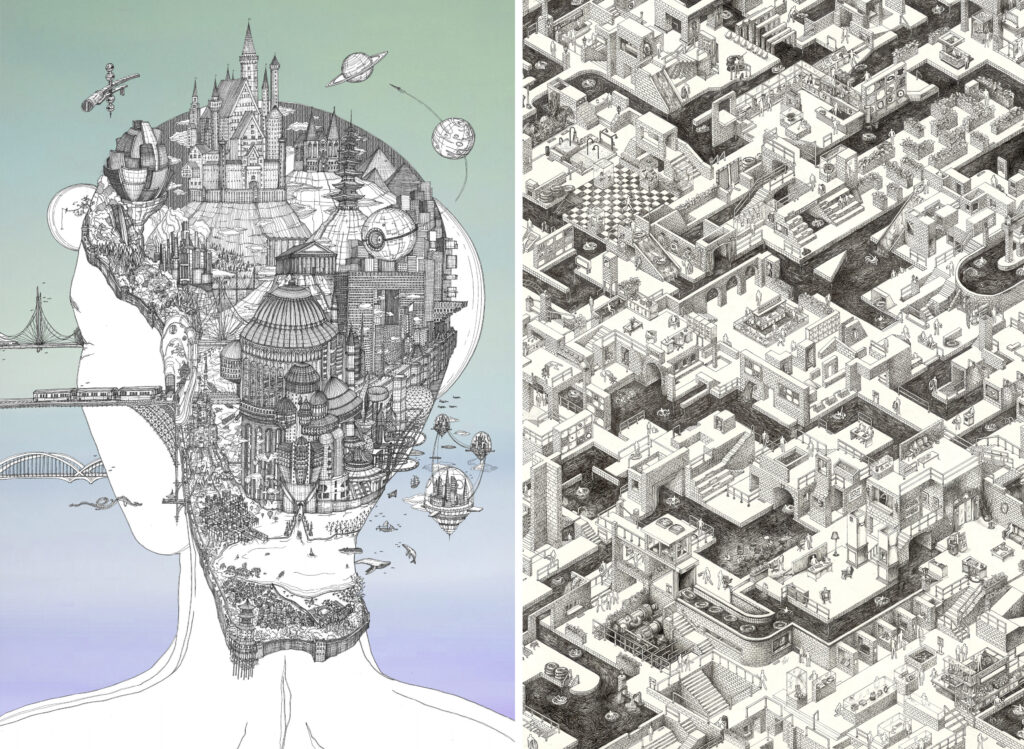
Left: “Mind Palace” by Mylan Thuroczy, Manchester School of Architecture; right: “Break and Float” by Michael Turner; finalists in Architizer’s One Drawing Challenge competition.
These architectural images, and the ideas they embody, are worth their weight in proverbial gold to the next generation of architects. From the outlandish drawings of Archigram to the abstract paintings of Zaha Hadid, conceptual works form a vibrant exhibition of ideas and inspiration, each contributing to the global discourse over the advancement of the profession and our built environment as a whole.
For this reason, it’s vital that we provide a platform to recognize architectural ideas and visual creations, no matter whether they are built or not.
Enter the Architizer Vision Awards. This brand new awards program is designed to celebrate every form of paper architecture — from napkin sketches and lost competition entries to thesis projects and early models — and give them the global spotlight, now and long into the future.
Vision Awards Winners will be published in the’Visions of Architecture’ anthology, as well as being celebrated year-round through innovative storytelling by Architizer’s team of architectural writers. Film Winners will be premiered in Architizer’s first ever Architectural Film Festival, a unique digital event to air later this year. Every Winner and Finalist will be exhibited on Architizer’s iconic Winners’ Gallery, the definitive directory of world-class architecture and design and an evergreen source of inspiration for the profession.
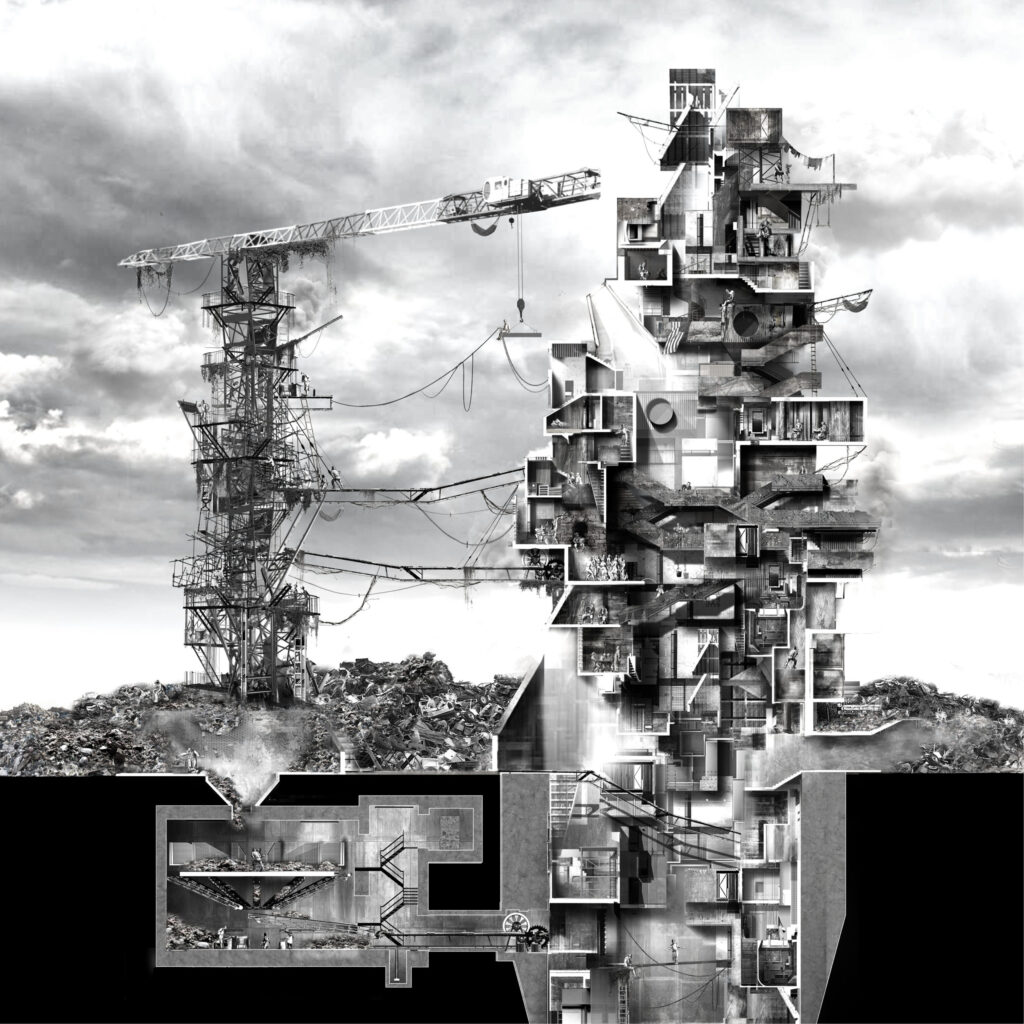
“Concrete Atla(nti)s” by Hannah Christy and Craig Findlay, University of Nebraska-Lincoln; Winner in Architizer’s One Drawing Challenge
Showcasing the Unending Value of Paper Architecture
Whether it is ultimately realized or not, paper architecture is a critical creative outlet for the profession. Drawings, renderings and models provide a perpetual record of the ideation process that architects go through when developing concepts, offering insights into how they approached design problems in the past. To honor the many mediums of architectural ideation, Vision Awards categories include:
- Best Architectural Drawing
(2 categories: Hand-drawn, Computer-aided) - Best Architecture Model
(Special category for physical models) - Best Architectural Visualization
(3 categories: Photorealistic, Illustrative/Artistic, AI-Generated) - Architectural Visualizer of the Year
(Portfolio award for studios and professionals) - Architect Creator of the Year
(Mixed media portfolio award for professionals) - Student Creator of the Year
(Mixed media portfolio award for students)
Together with categories for architectural photography and video, these awards will honor the best in architectural representation today, including the most compelling examples of paper architecture. By entering their work, architects can help to build a rich archive of ideas and designs that will motivate future generations of architects and push the boundaries of what is possible in the built environment.
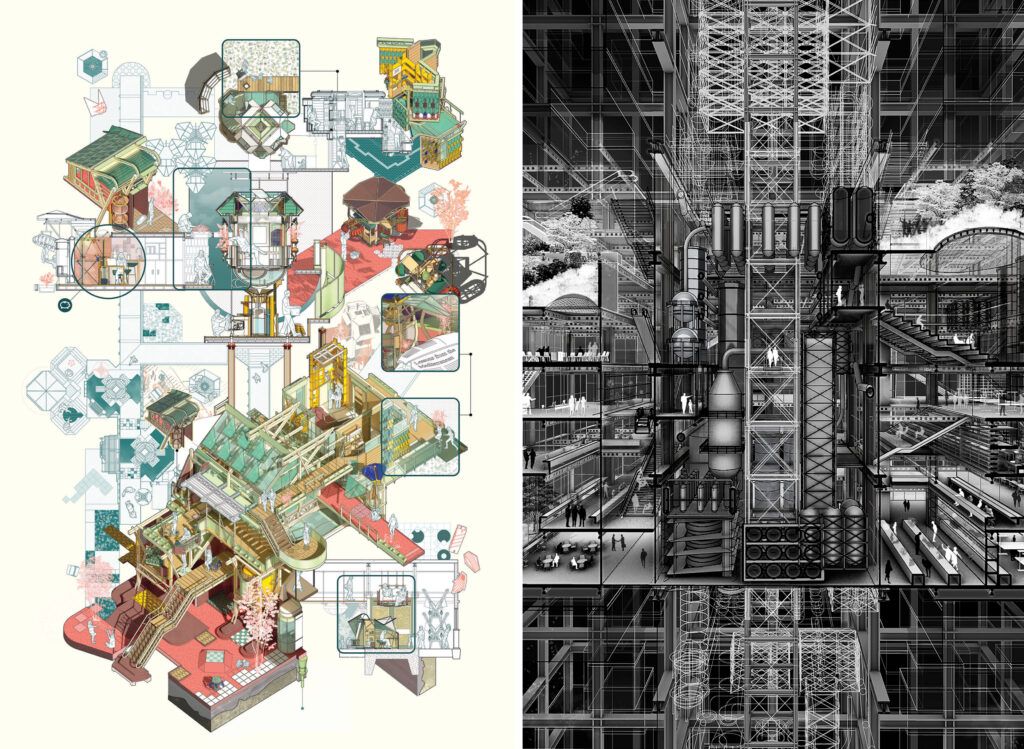
Left: “The Built Pension” by Yehan Zheng; right: HIGH- RISE TOPOLOGY. Infrastructure for energy creation” by Daniel Garzon; Finalists in Architizer’s One Drawing Challenge competition.
A Second Life for ‘Lost Projects’
The Vision Awards presents a golden opportunity for architects to showcase their unbuilt works, including former competition entries, speculative creations, and drawings or models for projects that stalled due to forces outside of their control. There are countless reasons why many brilliant architectural projects are ultimately left on the drawing board: budget cuts, site complications, changes in a client’s strategy or direction, or even some larger and impossible to foresee — like the COVID-19 pandemic.
Sometimes, an initial design might contain ideas that are ahead of their time, or deemed too ambitious to be realized when first conceived. Revisiting these ideas in the context of the Vision Awards may inspire new approaches to architecture in future, as new technologies emerge and changing social conditions give rise to new creative possibilities.
By bringing the best unrealized projects and conceptual designs together through the Vision Awards, Architizer is aiming to create a powerful repository of ideas, one that can be a touchstone for emerging architects long into the future. By entering their work for the program, architects can help to build on the legacy of the great ‘paper architects’, contributing to the ongoing creative conversation that fuels the wider profession.
If you are an advocate for the power of paper architecture and its potential to advance the profession, the Vision Awards needs you. Submit your most innovative work and let your ideas and those of your firm inspire the next generation of architects!
